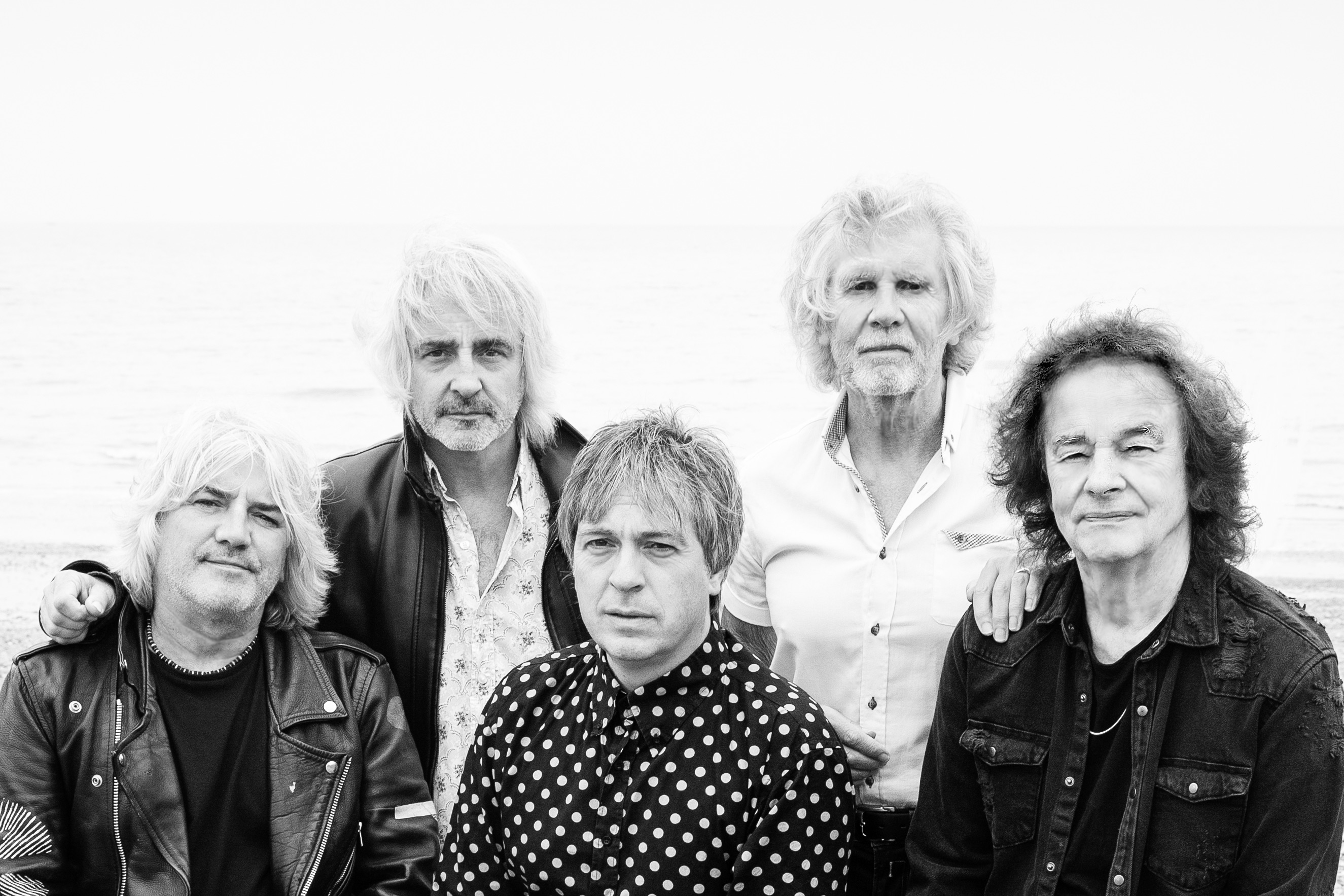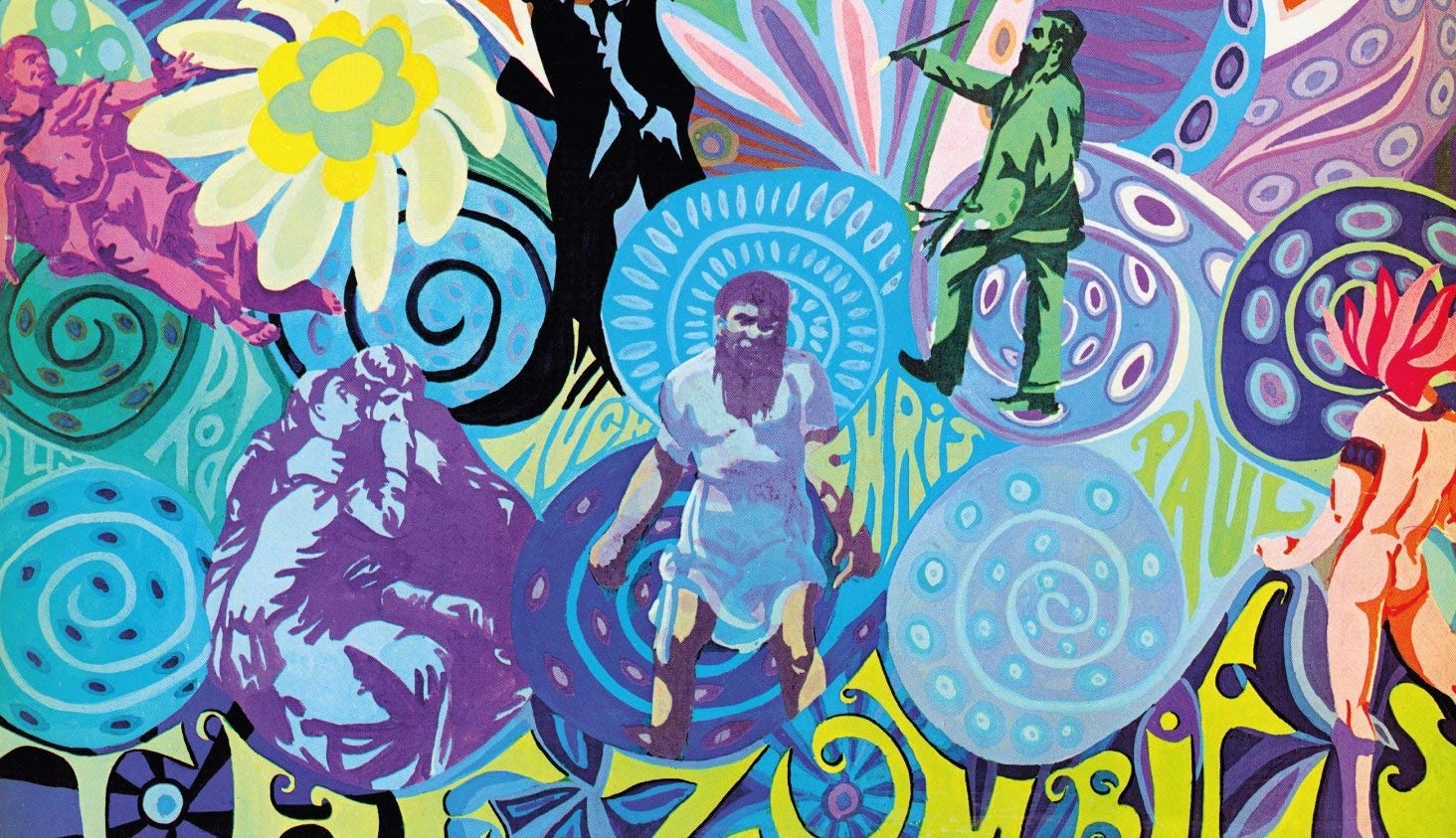It’s been fifty years since British psychedelic pop legends The Zombies released their defining LP Odessey & Oracle. Heralded as a masterpiece by cult tastemakers and rock and roll icons for its visionary melding of baroque touchstones with fetching hooks, the album saw little fanfare upon release, but became a curious success in the following decade. Key to The Zombies’ sound is lead singer Colin Blunstone’s voice: a pure, soulful, and steamy channel for lyrics that traverse the romantic and the subversive. When backed by the group’s masterful harmonies, songs like “Time of the Season” and “Care of Cell 44” elicit chills upon each listen, a meeting of mystery and delight that is at once accessible and otherworldly.
In celebration of Odessey & Oracle’s anniversary, Blunstone and founding member Rod Argent, along with three newer touring band members, have embarked on a two-week tour of the West Coast, ending at the Ace Hotel in Palm Springs on September 21. Blunstone spoke to FLOOD from his home outside of London.
You’ve been really busy touring lately. Do you still enjoy it after all these years?
Oh yes, everyone in the band still loves to tour. When you’ve been doing it so many years you have to love it to still do it. It can get a bit demanding. Sometimes you have to travel great distances. But apart from that it’s great fun. We all love playing live. That’s why we do it. I guess it’s in our blood.
It seems like you play a lot of sold-out shows, so that must feel good.
Absolutely, the audience always lifts you. If it’s a big audience, or a sold-out show in a smaller place, that’s the magic. I think it’s the communication between the audience and the artist. We’re quite fortunate. Originally Rod and I got together [in 1999] to do six concerts in the UK, but we enjoyed it so much we just kept going. We came to the States a couple of years later, and played a festival in New York that was absolutely packed out. But when we started traveling around the country it wasn’t automatic.
Really?
It’s something that’s sort of been built up over the years. In many ways we kind of had to go back to beginning again, and remind people who we were and what music we’ve made—and, of course, what music we’re writing and recording now. We’re a band that’s very much into writing new material. We don’t just rely on our back catalog, though we’ll always play the big hits and selections from Odessey & Oracle, so there’s songs that people know.
https://www.youtube.com/watch?v=Nbu_ThhDibk
There’s a song on your newest album, Still Got That Hunger, called “Chasing the Past.” The lyrics speak to the idea that the past is gone and that you’d take tomorrow over the past any day. However, you made one of the most influential records of all time, so I wonder how you reconcile that? It seems like the past will always be a part of your future.
Well there is an element of truth in that [laughs]. Of course we will always appreciate the past, but what motivates us is the future. That’s the really exciting bit for us, to write new songs and record new songs. But we can’t deny who we were and what we’ve done and we celebrate that.
I thought it was really interesting that Still Got That Hunger charted at the same time as a reissue of Odessey & Oracle. What a mingling of past and present.
“That’s the really exciting bit for us, to write new songs and record new songs. But we can’t deny who we were and what we’ve done and we celebrate that.”
I didn’t know that at first! It is good, isn’t it? Fascinating. Because Odessey & Oracle didn’t really chart the first time around. I looked it up on Billboard once and I think it came in at ninety-eight [in the US] for one week. I don’t know if you call that a hit or not, really [laughs]. That’s such a mysterious thing about this album. To a large extent it was ignored by the media and the public. From my memory it got one or two good reviews and it just escaped. It wasn’t really noticed by anyone, and it took about ten or fifteen years before people started to talk about it, particularly in the media. And quite a lot of high-profile musicians started naming it as an influence.
Like who?
In America, probably the first person to talk about it was Tom Petty. Over here, Paul Weller talked about it constantly. Gradually that just grew and grew. It is a bit of a mystery that this record got so much acknowledgement and acceptance after such a long period of time.

The Zombies / photo courtesy of the group
I worked on something recently that really illuminated just how enamored British rock acts were with American blues artists in the 1960s. I wonder if you can speak to that.
Oh, we definitely were. We used to call ourselves “The Zombies R&B,” and we would play classic blues and R&B tunes. At one point that would have been the backbone of what we were playing. It was by chance that we began writing, when our producer at the time said, “You could always write something for when you go into the studio.” And Rod went and wrote “She’s Not There” very quickly. Chris White also wrote a tune that became the B-side, “You Make Me Feel Good.”
“I’m often reminded that I wasn’t too keen on ‘Time of the Season.’ I would have never thought that it would be a hit.”
We realized quite quickly that we’ve got two really good writers in the band. And it was only then that we moved away from the blues and R&B. Though the original band was professional from ’64 to ’67, we were actually together from ’61 to ’67, so we played [blues and R&B] for quite a long time. By the time ’67 rolled around we were playing more and more of Rod and Chris’s songs.
When you first sang “This Will Be Our Year,” did you have any idea that it would be included on legions of romantic mixtapes and wedding playlists?
Not really, no [laughs]. I did like it when I sang it. But it’s hard to know. I’ve always had favorites, and I’ve always really liked “This Will Be Our Year.” I don’t think there’s any way of knowing how strong the record is going to be until it’s absolutely finished. Even then I think you need a couple of years away from it, because it’s so intense recording an album. I think you need a couple of years to reevaluate. I don’t listen to Odessey & Oracle a lot, but I certainly didn’t in the couple of years after we recorded it. I’m often reminded that I wasn’t too keen on “Time of the Season.” I would have never thought that it would be a hit.
Really? Why not?
It was the last song we recorded, and it was only finished just before we went into the studio. Because it was just written I wasn’t really on top of the phrasing in the song. We were up against the clock and trying to get this track finished. Rod was coaching me from the control room, and I kept getting it wrong. As a matter of interest, there was a big clock in front of me and a red light—we were in Studio Three in Abbey Road—and I knew we were running out of time. We had only a very limited budget.
It always makes me laugh because Rod and I started to really shout at one another through the mic, very very bad language which I’ll spare you. But it went something along the lines of me saying, “Well, if you know it so well then you bloody do it,” and him saying, “You’re the lead singer, you bloody get it right.” But it makes me laugh because I’m singing, “It’s the time of the season for loving,” and Rod and I are absolutely at one another’s throats. “Care of Cell 44,” I thought that was the most commercial track and it never sold a light. We issued it as a single and absolutely nothing happened.
Odessey & Oracle has some epic love songs, but on the flip side, your first solo album, One Year, has some devastating breakup songs. I think “Caroline Goodbye” is one of the greatest breakup songs. Do you still play those songs live? Is it difficult to play them?
I do have a solo band and sometimes with The Zombies we’ll play “Caroline Goodbye,” but we’re not at the moment. And it’s not difficult. That was then and this is now. It was fifty years ago—I’ve learned to live with my heartbreak. FL







